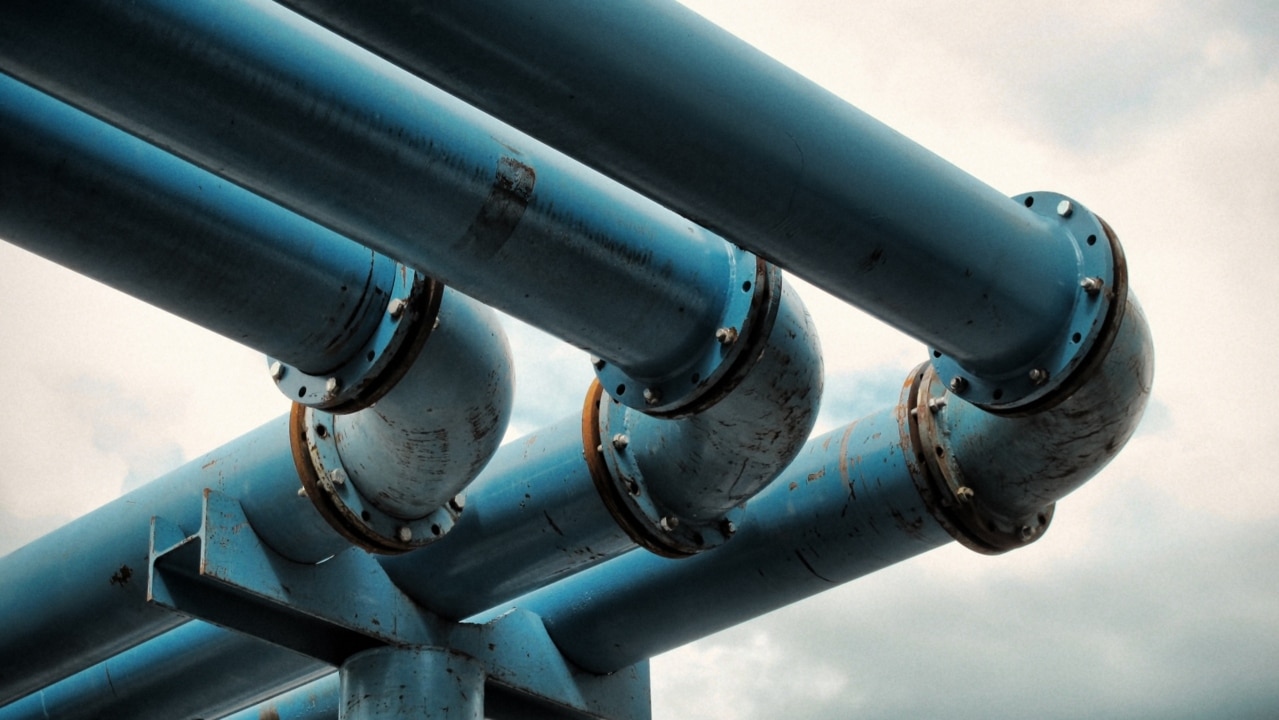Santos says Timor Sea ‘rainbow serpent’ won’t be impacted by its Barossa gas development
Lawyers for resources giant Santos say its planned $5.3bn pipeline through the Timor Sea cannot affect an Indigenous spiritual belief and has accused activists of scheming.

The $5.3bn Barossa gas development in the Timor Sea will not impact underwater “songlines” and the culture of Indigenous people living on the Tiwi Islands, lawyers for Santos have argued.
Santos lawyers told the Federal Court in closing remarks on Thursday that Ampiji would not be disturbed by a pipeline running across the sea bed as the “rainbow serpent” was not connected to any specific site in the area.
A small group of traditional owners, led by Simon Munkura, is opposed to the Barossa project well off the coast of the Northern Territory’s Tiwi Islands and claim it will damage sea country and cause deep spiritual concern if the journey of Ampiji and Crocodile Man songlines are disturbed.
Justice Natalie Charlesworth is scheduled to deliver her judgment on January 15.
This week the oil and gas producer received a green light from federal offshore regulator the National Offshore Petroleum Safety and Environmental Management Authority to proceed with a revised plan for drilling at the Barossa project.
Last month the Federal Court ruled Santos could not fully lay undersea pipes for the project at least until January, as a result of Mr Munkura’s legal challenge.
Vanessa Whittaker, SC, for Santos told the court that the alleged impact to Ampiji and Crocodile Man was a constructed case not born of community belief, accusing Dr Mike O’Leary and the Environmental Defenders Office of coming up with a narrative to stop Barossa.
“By that I mean infected by the EDO, assisted by experts, possibly naive but certainly not objective nor independent who were working towards the goal of stopping Barossa,” she said.
“The evidence doesn’t substantiate that Ampiji is linked to any specific site in the sea.
“Before Professor O’Leary’s cultural mapping, there is no record in the literature of Ampiji being in a particular place in the sea, and there is no record of a mother Ampiji resting in a freshwater lake at sea.”
Ms Whittaker said that the court should not place any weight on cultural mapping and the conclusions Dr O’Leary forwarded about the effect of the pipeline on the local community.
“Dr O’Leary took what he was fed by the EDO and he travelled beyond any expertise that he has,” she said.

“He was involved in the strategy to have the Tiwi Islanders connect songlines to his maps for the purpose of stopping Barossa. He was not faintly independent. His methodology cannot be fairly described as scientific or Indigenous-led.”
Santos claimed that Dr O’Leary told people on the Tiwi Islands at meetings that the EDO wanted to try to connect song lyrics to the map because it would be “very important to NOPSEMA and help to say that Santos can’t put the pipeline there”.
“The applicants say that the relevant community for the Crocodile Man is Jikalaru, but the applicants are not all Jikalaru,” Ms Whittaker said.
“In fact, they are from four different clans. And that would pose serious standing issues in our submission with respect to the Crocodile Man story,” she said.
“If the relevant community or people is Jikalaru, it is very difficult to see how the pipeline could be restrained on the basis of a narrow geographic section of the pipeline.”
Lawyers for Mr Munkura on Wednesday told the court that there would be deep spiritual concern to the local Indigenous community if the journey of rainbow serpent Ampiji were disturbed by the pipeline.
Santos has earmarked the project as a driver of future growth. In court on Wednesday, Mr Munkura’s lawyers argued the area where the pipeline would be built was part of traditional deep-sea country and its construction also would disturb the path the Crocodile Man as he travelled offshore from a cave on Bathurst Island.
Santos has previously said it would need to start drilling this month to meet its production target for first gas by early 2025. NOPSEMA’s approval shows it accepted a revised plan by Santos on Friday.
Six subsea production wells are planned to be drilled and completed around the future locations of three subsea production manifolds, with two wellheads adjacent to each manifold. If required, up to two contingency production wells could be drilled.
Gas produced from its offshore Barossa field would be transported to its Darwin LNG plant and would then likely be sent to lucrative export markets such as Japan.
However, a looming gas shortfall across Australia’s eastern seaboard could require shipments to be diverted to LNG import facilities being constructed in NSW and one proposed for South Australia.



